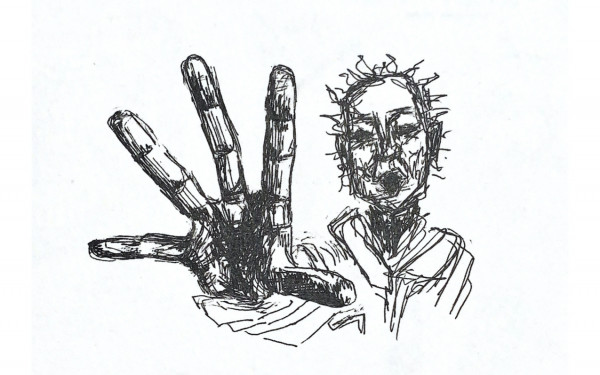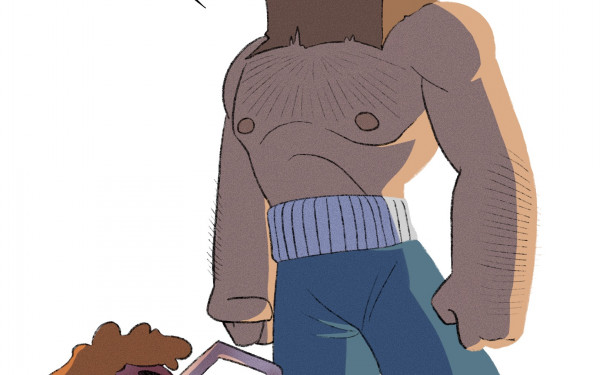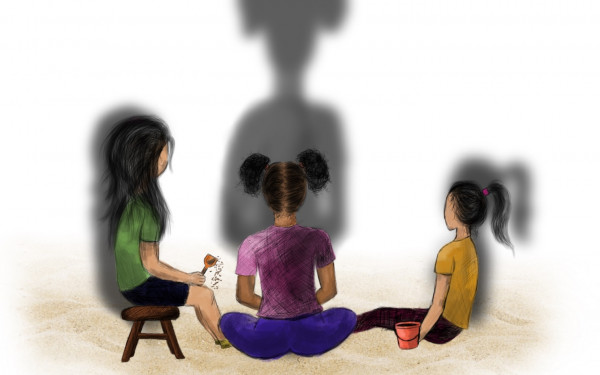Am I being a bad friend?
High-maintenance friendships and the tendency toward toxicity
Society has set a standard about what a best friend should be. It typically includes qualities like trustworthiness, loyalty and mutual support.
Best friends are often expected to be there through thick and thin, to provide emotional support and to keep secrets. However, the exact definition can vary widely based on individual experiences, cultural backgrounds and personal preferences.
I have had the same friends since I was ten years old. We didn’t even go to the same high schools, yet not one of us has ever made another feel like we aren’t enough as friends.
Now at 20, I see my friends once or twice a month and we catch up on everything that has happened since the last time we spoke. We hardly text, we don’t call every day and we rarely have arguments, and that works for us.
Life moves so fast, especially as a student. For many people, it often feels like there's a continuous demand to stay connected, to always be available for calls, FaceTime or texts. But in reality, many of us are juggling multiple responsibilities and simply don't have the time to be constantly in touch.
A difficult challenge that can arise in a friendship is the imbalance of effort in maintaining the relationship. One-sided friendships can be so emotionally draining. They can leave you feeling isolated and lonely, especially if you’re the one providing support but not receiving any in return.
It can feel like you're always the one who's putting in the work, while the other person takes a more passive role. Maybe they don't initiate contact, they don’t make plans or ignore your feelings and take you for granted. But as soon as there's a bit of distance that develops in the friendship, they’re quick to point the finger and criticize you for all the problems.
This can lead to feelings of frustration and resentment. You start to wonder, will they ever reach out if I don't? Is our friendship over?
Friendships can be especially draining when expectations are high. Those we consider friends often have unrealistic expectations of us; they expect constant availability and undying loyalty.
It’s important to recognize our own limits and boundaries in all relationships. Preserving a friendship should never come at our own expense, especially if it causes us nothing but pain. Not everyone can handle a high-maintenance friendship—I certainly can’t, and that’s perfectly okay. Prioritizing your needs before others is normal and it’s okay to say no to plans or take a step back when you need space.
Friendships shouldn’t be about constantly meeting unrealistic expectations. If a friend expects me to drop everything and always be available at a moment's notice, that's not realistic or fair. Friendships should be about mutual respect, understanding and support. I should be allowed to say no to plans without it resulting in an argument.
It’s okay to have different definitions of what makes a good friend. What works for one person may not work for another. It doesn’t mean you are a bad person, it just means you are not the version of a best friend the other person expects in order to meet their needs. If those needs are toxic, pushing them away is fine. Outgrowing people is a part of growing up and moving on.
It's important to prioritize your mental and emotional well-being. If a friendship is causing you more stress than joy, it may be time to reevaluate the relationship. Take a step back, reassess your priorities, and focus on the friendships that truly bring positivity into your life.
A true friend supports you in every way possible, they’re by your side through thick and thin. Those qualities should not be overlooked just because they don’t call you enough.
Stop worrying about meeting other people's expectations and focus on the friendships that bring you happiness and fulfillment. Don't be afraid to let go of those that don't.
This article originally appeared in Volume 44, Issue 13, published April 2, 2024.

_900_629_90.jpg)





